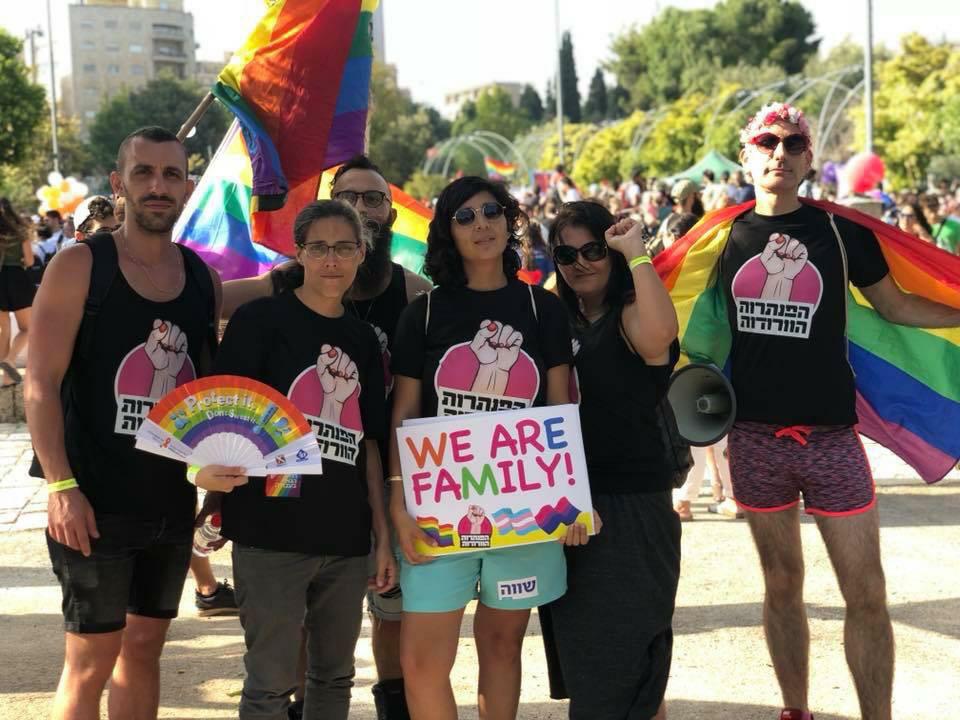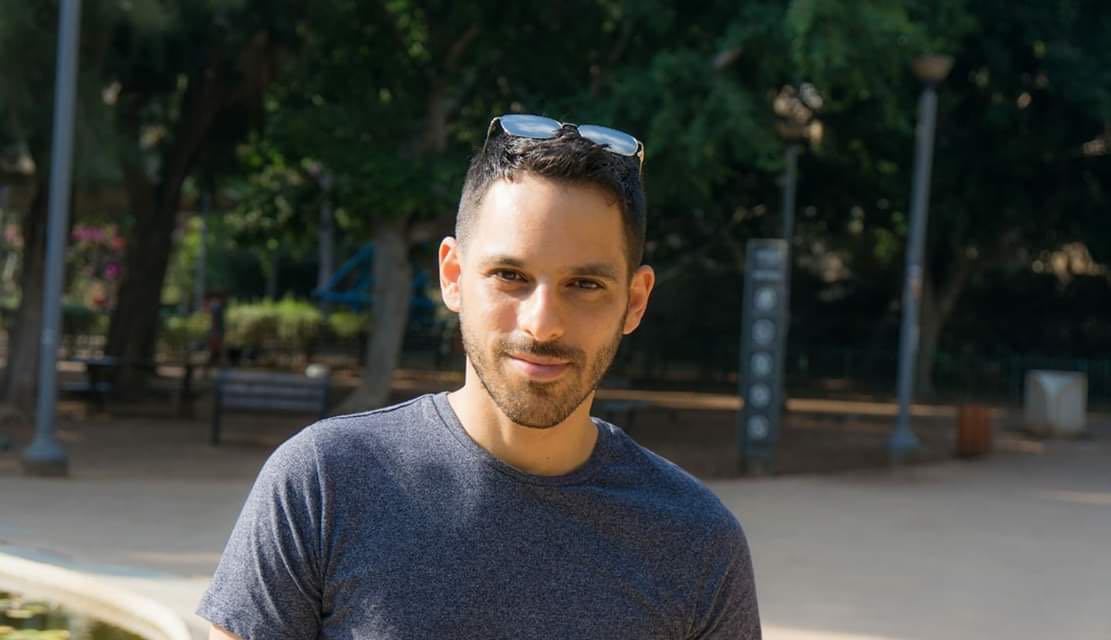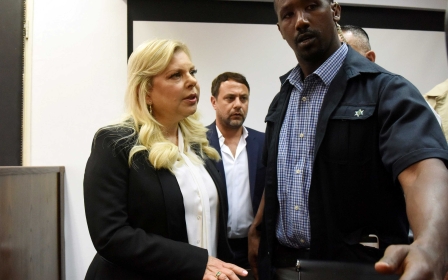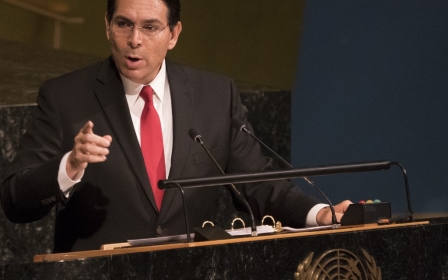Fig leaf? Israelis fear first gay minister only there to protect Netanyahu
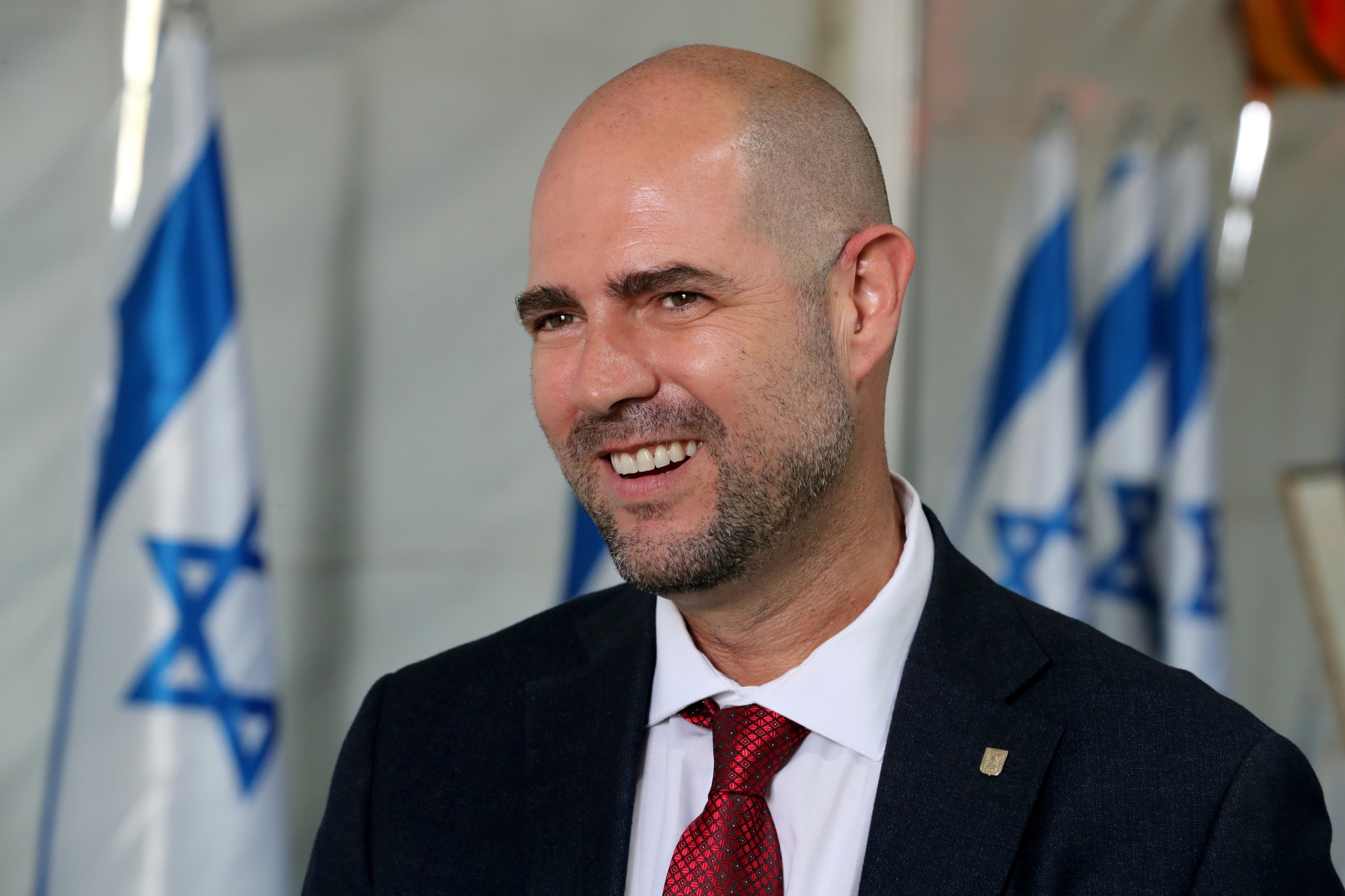
It was a surprise when Israeli Prime Minister Benjamin Netanyahu appointed Amir Ohana, as his minister of justice last month.
Not only did Ohana, 43, who is raising twins with his husband, become the first openly gay minister in the country’s history, but he was also a relatively fresh face in the Knesset.
'He is doing what’s needed by Netanyahu, who is using him for PR while pissing on his community'
- Alon-Lee Green, CEO of Standing Together
A former official in Israel’s internal security apparatus, Shin Bet, and lawyer, he has served as the chairman of Likud Pride, the party’s gay caucus which he helped establish, for several years, but only entered the Knesset in late 2015, taking over for MK Silvan Shalom who resigned amid a sex scandal.
Popular on the right, following the elections in May he climbed to the 20th slot on the Likud list, up from the 32nd slot in 2015.
New MEE newsletter: Jerusalem Dispatch
Sign up to get the latest insights and analysis on Israel-Palestine, alongside Turkey Unpacked and other MEE newsletters
His appointment as justice minister several weeks later came amid pointed criticism of Netanyahu and his Likud party and fears of increasing religious extremism, all of which intensified after Netanyahu failed to form a government following the elections.
While the historic appointment made some liberal circles very happy, especially in the gay community, others voiced criticism and called it a fig leaf, saying it will have no real impact on the legal challenges their community faces.
A question, meanwhile, has hovered on the fringes: is the selection of a young MK, a Netanyahu loyalist enjoying a meteoric rise in the Likud, as minister of justice mainly designed to save Netanyahu from indictment in three corruption cases?
'Right man, right place, right time'
Much of the criticism of Ohana from the gay community stems from events during his tenure in the Knesset before his ministerial appointment.
Shortly after Ohana was sworn in to replace Shlom, a series of laws designed to prevent discrimination against the LGBTQ+ community came up for a vote.
They included a law recognising the rights of gay partners of victims of terrorism and gay partners of soldiers, and a law against discrimination based on sexual orientation. A law to give gay couples equal access to surrogacy, which drew hundreds of thousands of Israelis to the street last summer, was also on the table.
Ohana was obliged to vote against all of them due to Netanyahu’s agreements with his conservative Haredi coalition partners. Instead, he left the hall without casting a vote. He wrote afterwards that he had left in a principled move because the bills weren't going to pass anyway.
Alon-Lee Green, CEO of Standing Together, a grassroots movement of Jews and Arabs working for peace, equality and social justice, said voters shouldn’t fall for the spin around Ohana’s appointment.
“Amir is someone who, all during his time in the Knesset, sacrificed the rights of his community for the personal power he was looking for, who voted against his friends, who betrayed the people who need him – even when his was the missing vote that could have granted them rights,” Green wrote on Facebook.
“Ohana is the right man in the right place at the right time: He is doing what’s needed by Netanyahu, who is using him for PR while pissing on his community – on all the lesbians, gays, trans, and bi people in the community. It’s disgraceful.”
The gay community’s anger at Ohana peaked during the 2019 Pride Parade in Jerusalem on 6 June when bystanders booed him as he ascended the podium to speak.
“I think the booing was a way for the public to protest because they feel that nothing else is helping. Their voice is not being heard,” said social activist Reut Nagar.
“A quarter of a million people were at the 2019 Pride Parade in Tel Aviv on June 14th, and Pride events took place this year in 54 locations around the country. And still, there is discrimination, and our rights are denied us. This creates a lot of frustration.”
Appealing to liberals
Despite criticism of Ohana’s tenure, most of the right-wing activists in the gay community believe that Ohana’s appointment was a historic step for the country.
But they also understand that Ohana – of whom Netanyahu has said he is “proud”, which in Hebrew sounds like “gay” - was named as justice minister to appeal to liberal voters, particularly after Netanyahu’s failure to assemble a government.
Every time Netanyahu has run for office in the past, he has announced that Haredi parties are his natural coalition partners. But during the May elections, he looked set to have one of the most right-wing, ultra-religious coalitions ever seen in the country.
The coalition, however, failed to form after Netanyahu’s former defence minister Avigdor Lieberman’s refusal to compromise with the demands of the Haredi parties, namely that Haredim would be able to avoid enlisting in the army.
The collapse of the negotiations and Netanayahu’s announcement of a new election intensified public concerns about growing religious extremism, and the Likud took some punishment from secular voters on the right.
'I hope that when push comes to shove, Amir will remember how important it is to put our LGBT identity up front'
- Reut Nagar, activist
It was in this context that Ohana was appointed, said attorney Eran Rosenzweig, a member of Likud Pride, quelling an argument over the rights of the gay community and the role of religion in national affairs.
“Appointing someone identified with the gay community was just making a statement about the current atmosphere from the prime minister’s perspective,” Rosenzweig told MEE.
Nagar, the social activist, said that despite concerns over Ohana’s loyalty to the LGBTQ+ community, she chooses to give him the benefit of the doubt.
“I hope that at the moment of truth, he will see the community standing there right in front of him. Our Knesset is getting more and more extremist; we’re seeing this with every new election,” Nagar said.
“I hope that when push comes to shove, Amir will remember how important it is to put our LGBT identity up front.”
Ohana himself appears unperturbed by criticism from the left. In the past, he has argued that being LGBTQ+ is only one component of his identity and one which he doesn’t preference over others.
“As a Jew, as an Israeli, as the partner of the love of my life Alon Haddad, as father to Ella and David, my family, as a Mizrahi, as a Likudnik, a Beersheba native and a liberal (what comes first? it all comes together!),” he wrote on Twitter on the eve of his appointment as justice minister.
Protecting Netanyahu?
Ohana is, however, well-known for his hostility towards the Israeli judicial system and his appointment raised eyebrows as many wondered whether he had been put in place to protect Netanyahu from indictment.
He was among the forces behind the Nation State Law, a bill passed last year which gives Israeli Jews supremacy over all non-Jewish citizens and is currently being challenged in eight separate high court petitions.
'I think our situation today is unbalanced, because the court’s job is to achieve a balance, but right now it has a status it never had'
-Eliran Gafso, CEO of Betar
He has also pushed for the so-called Infiltrator Law, designed to pave the way for the deportation of refugees and economic migrants in Israel, which the supreme court struck down. That decision caused an uproar on the right and Ohana spoke out against it.
Eliran Gafso, CEO of Betar, the Zionist movement started in 1923, and a Likud Executive Committee member, said he sympathises with Ohana’s position.
“I think our situation today is unbalanced, because the court’s job is to achieve a balance, but right now it has a status it never had – instead of looking for balance, it’s overpowering the legislature,” Gafso told MEE.
“The judges are only human in the end, and they are politically powerful. The branches of government are supposed to be balanced. The sovereign power, which is the Knesset – [elected by] the people, wants to lead a process and pass a law. From the court it needs criticism and balance, that’s the court’s job. But the Knesset also has a job to do.”
However, it is Ohana’s recently declared support for what is called the far-reaching “override bill” that has sparked concern among his critics.
If passed, the bill would allow lawmakers and government ministers to ignore the rulings of the High Court, including any future decision to rescind Netanyahu’s immunity if and when he is tried on three corruption charges.
“In an unprecedentedly cynical move, Ohana has agreed to play pawn to Netanyahu in his war against Lieberman and against the justice system,” wrote Alon-Lee Green in his post.
But Rozenweig, the attorney and Likud Pride member, said the bill has wide backing in the party.
“The support for the override bill has a consensus in the Likud, and not only there; the other coalition parties also support it. Everyone believes that the high court has gone too far,” he said.“Ohana believes that the high court’s power should be reduced to prevent [the justices] from interfering in legislation by the people’s elected representatives in the Knesset.”
Is Ohana’s enthusiasm for reining in the high court really a matter of ideology, or is it a quid pro quo to Netanyahu for his rapid political rise?
And will Ohana succeed in pushing the bill which would protect Netanyahu from the long arm of the law through the Knesset? Only time will tell.
Middle East Eye delivers independent and unrivalled coverage and analysis of the Middle East, North Africa and beyond. To learn more about republishing this content and the associated fees, please fill out this form. More about MEE can be found here.


